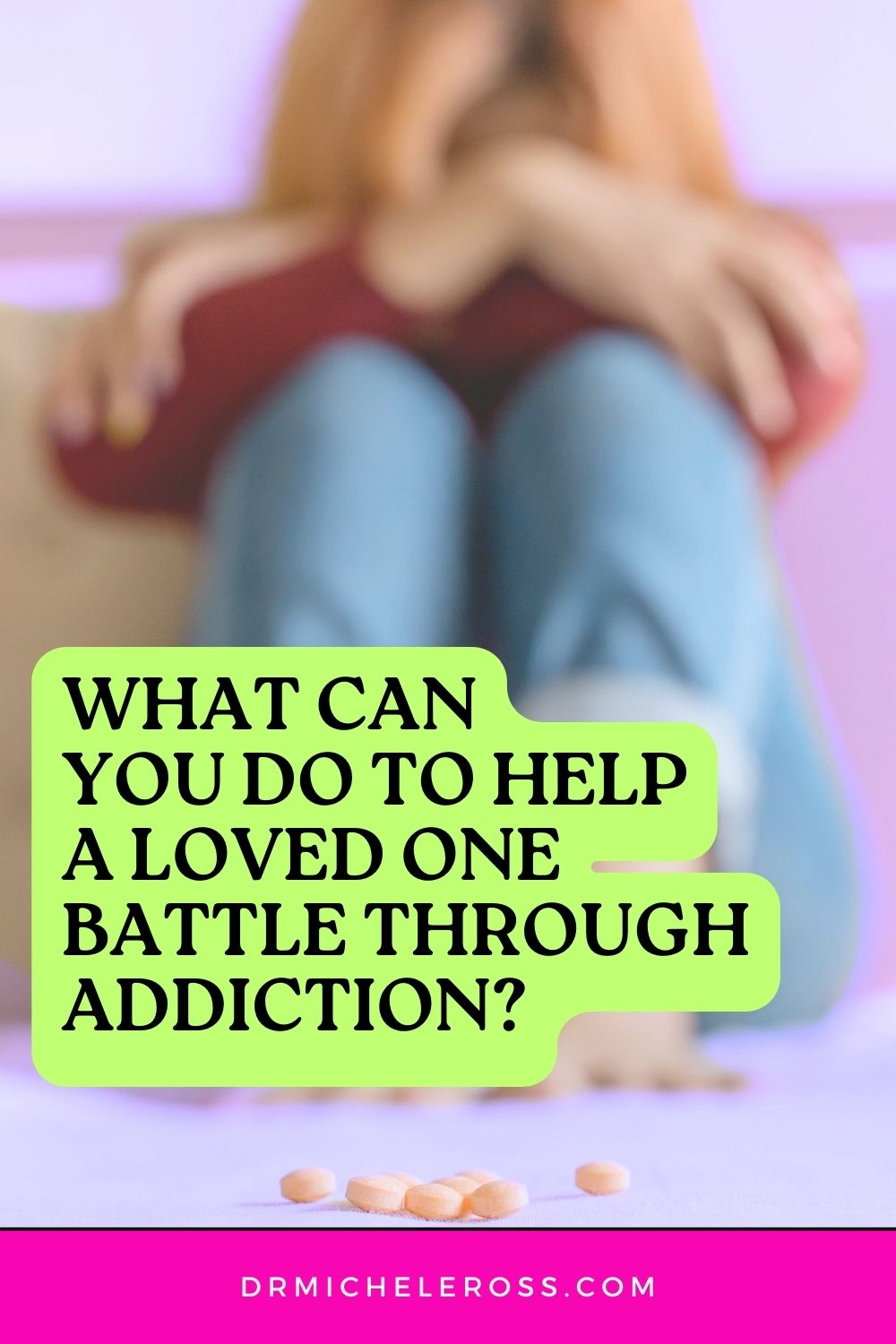
Helping someone battle through addiction requires a compassionate, multi-faceted approach. Addiction is a complex, chronic condition characterized by the compulsive use of substances despite harmful consequences. It involves both physical and psychological components, and overcoming it often requires a combination of medical treatment, therapy, social support, and personal commitment.
You, individually, will not be able to battle addiction on behalf of your loved one. You may, however, be able to play a key supporting role in helping them through their journey to fight the illness. Here, we’re going to look at a few of the steps you can take to do just that.
Understand Addiction
Before providing support, it is crucial to understand the nature of addiction. Many may jump to characterize addiction as a lack of willpower or some other kind of personal failing, but that simply isn’t an accurate understanding of how it works. Addiction works through a fundamental change to brain chemistry and function. Substances such as alcohol, opioids, and stimulants can alter brain circuits involved in reward, motivation, memory, and self-control.
Similarly, addiction can affect those who are using prescription medication, such as those taking pain medication to control their chronic pain, it’s not just relegated to those who use recreational drugs. Recognizing that addiction is a disease is a vital step to playing the right kind of influential role in your loved one’s life.
Educate Yourself
Addiction can affect every person differently, but a lot of times, the disease will manifest differently based on the specific kind of addiction that the person is facing. Different substances affect the brain in indifferent ways, have different symptoms, and have different withdrawal symptoms.
Understanding the particular challenges associated with the addiction can help in providing targeted support. Utilize reputable sources such as medical websites, books, and articles, and consider speaking with healthcare professionals. The more that you are able to understand the mechanics of addiction on a personal level, the better you are able to recognize the ways it may be affecting your loved one.
Build Trust and Communication
One of the fundamental truths of dealing with addiction is that, without a court order, you cannot force someone to seek treatment for their condition. Indeed, some people might find it difficult to even acknowledge that they have a problem to begin with, so you have to help them get to the point where they will admit it, and accept your help. Building a foundation of trust is essential. Approach the individual with empathy and without judgment. Open, honest, and non-confrontational communication encourages the person to share their struggles and feelings. You can look up tips for holding an intervention if your loved one is not acknowledging the problem, so you can find the best way to encourage them to face it, too.
Find A Referral For Professional Help
As mentioned, it’s important to build that understanding that addiction is not a personal failing or a lack of willpower, it is a medical condition that requires an understanding of how substance dependence and abuse can change the function of the brain. As such, addiction often requires medical and psychological treatment.
Suggest they see a doctor or addiction specialist who can provide a proper diagnosis and treatment plan. This might include detoxification, medication-assisted treatment (MAT), behavioral therapies, or counseling. An outpatient rehab center can help those who are able to get the treatment they need while still taking care of their responsibilities in daily life in the outside world. However, some patients may need inpatient facilities that can give them the protection of a safe environment curated specifically for their care.
Support Them With Their Treatment
While your loved one is undergoing their own treatment, there’s a lot that you can do to support them. This can include helping them attend appointments, whether it’s by arranging transportation, childcare, or otherwise helping them get rid of barriers that can prevent them from attending. If you’re able, you may also want to accompany them to appointments, if you are both welcome with it.
It is important to know that the work of treating addiction can be deeply personal, so some parts of it may not be appropriate for you to be around. It’s also important to understand that recovery can be a long, non-linear process. Relapses can occur, but they do not signify failure. Encourage the person to continue with their treatment plan even if setbacks happen.
Provide A Safe Environment For Them
While you may not be aware of it, you may be playing the role of an enabler in your loved one’s addiction. You don’t have to actively try to get them to indulge in their addiction to be an enabler. Sometimes, simply not being aware of the risks in your shared environment can be enough.
Take the time to look at the kind of environment you create or share with your loved one, and the triggers and temptations that may do more to promote a relapse than you realize. Ensure that their space, and spaces you share with them, are free of drugs or alcohol. Encourage them to void places and situations that may trigger a relapse. Play a positive role that encourages them to engage in healthy coping mechanisms, as well. This can include getting into exercise with them and working out together.
Ensure The Right Emotional Support
While a person is undergoing treatment, you will not be responsible for managing their condition. Instead, the role you can play may involve emotional support. Being available to talk with or spend time with a person can help them understand that you are there for them. It’s important to learn to listen without judgment as they talk about their feelings and experiences, too, while also helping them focus on their progress and celebrating any victories, no matter how small or large, with them. A strong support network may involve more than just you alone, however. You can also encourage family members to educate themselves about addiction and participate in family therapy sessions if available. A united front can provide a stronger support system.
Support Them In Building A Healthier Life
A big part of the recovery process is not just breaking the dependence that your loved one may have formed with the substances they were addicted to, but repairing the life that has been damaged by that addiction, as well. Encouraging healthy living not only does that, but also develops less harmful coping mechanisms to deal with stress, anxiety, and the persistent cravings that can stay with them long after treatment.
Mindfulness and meditation can help, as can regular exercise, and engaging in creative hobbies. You can also provide practical help with assisting them in getting back into employment or finding a place of their own to live, if they are at that stage, too.
Recognize The Signs of Relapse
Unfortunately, relapse is a common part of the recovery process. Not everyone manages a clean break. However, relapse doesn’t mean that they are a lost cause. You should learn to recognize the signs of potential relapse, which might include changes in behavior, such as increased secrecy, withdrawal from social activities, or changes in mood, sleep patterns, appetite, or personal hygiene. If you notice signs of relapse, address them calmly and supportively. Encourage the person to seek help immediately.
Encourage Their Long Term Commitment
Recovery from addiction is an ongoing process. Encourage the person to commit to long-term recovery plans. Continued therapy, such as ongoing counseling, can help to address underlying emotional issues that led to the addiction battle in the first place. Regular appointments with healthcare providers to monitor health and manage any co-occurring conditions. Encouraging them to stay connected with support groups can ensure that they are always making an effort to be aware of and to fight the patterns of thought and behavior that can lead to relapse, too.
Take Care Of Yourself
Supporting someone through addiction can be emotionally taxing. It is crucial to take care of your own physical and mental health. Ensure you have your own support system, which might include friends, family, or a therapist. Engage in activities that help you relax and recharge. You also need to be sure that you’re keeping yourself safe when helping someone fight an addiction. If you’re not able to set healthy boundaries, you can end up taking on too much emotional burden yourself, which can be dangerous for your own mental health.
While it’s not always likely, addicts can sometimes engage in harmful or destructive behavior that can harm those around them, even if not directly or physically. Set healthy and clear boundaries about what behavior is acceptable and what is not, and enforce those boundaries for your own safety if for nothing else.
Conclusion
Helping someone battle through addiction is a challenging yet rewarding endeavor. It requires patience, understanding, and a multi-faceted approach. By educating yourself, building trust, encouraging professional help, creating a supportive environment, and promoting healthy coping mechanisms, you can provide the necessary support for someone on their journey to recovery. Remember to take care of yourself in the process, and never hesitate to seek professional guidance when needed. With the right support, individuals battling addiction can achieve lasting recovery and reclaim their lives.
Pin This Post





